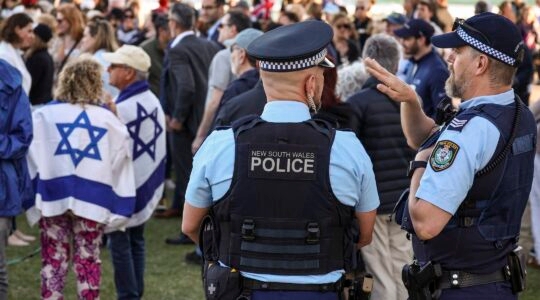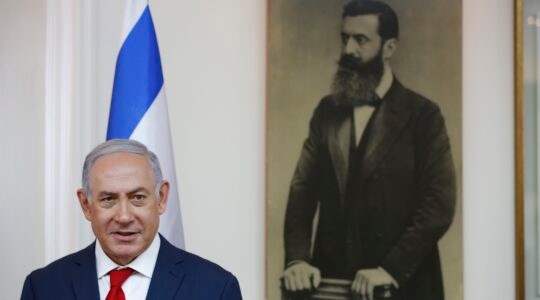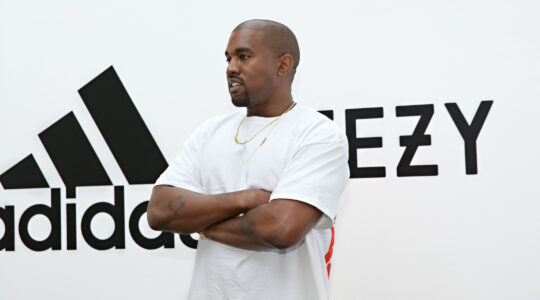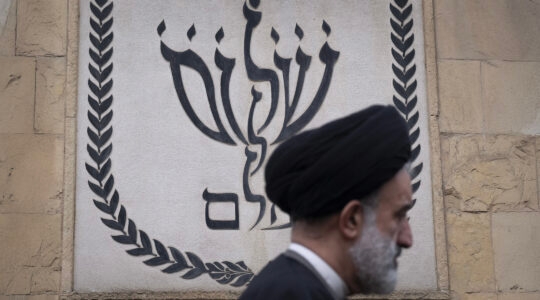SYDNEY (JTA) – With Australia’s prime minister fighting for his political life, Israel may lose a good friend and ally.
For the past six months, major polls here have predicted that John Howard, leader of the Liberal Party and a close ally of both Israel and the United States, will lose in Saturday’s national elections to a rejuvenated Labor Party.
The good news is that Howard’s likely successor, Labor leader Kevin Rudd, is not expected to substantively change Australia’s positions on matters of concern for the Jewish community.
Mark Leibler, national chairman of the Australia/Israel & Jewish Affairs Council, a sister organization of the American Jewish Committee, described Howard’s 11-year reign as a “golden era” for Australia’s 100,000-plus Jews but said he didn’t believe the situation would be “dramatically different” if Labor wins.
Howard supported the U.S. invasion of Iraq, has defended the legitimacy of Israel’s security barrier in the West Bank and Israel’s war against Hezbollah in Lebanon last year, and delivered a scathing eulogy when Yasser Arafat died in 2004. Howard has been showered with awards from Jewish community organizations here and in the United States.
Rudd, who has visited Israel twice, also is viewed as pro-Israel and is likely to have at least two Jewish members of parliament alongside him in government if Labor wins.
An economic conservative, Rudd appears to have captured the Australian zeitgeist. Even recent revelations that Rudd, 50, visited a strip club in New York in 2003 with New York Post editor Col Allan have failed to dent Rudd’s lead in the polls.
Labor needs 16 more seats in the 150-seat House of Representatives to wrest power from the Liberal Party, which has controlled the premiership since 1996.
Leibler, who met Bush on both of his visits to Australia, said Rudd was a strong supporter of the United States, and even though Labor wants to withdraw Australian troops from Iraq, it will not “upset the apple cart.”
Michael Danby, the only current member of parliament who identifies as a Jew and who is expected to win re-election in Melbourne, told JTA a Rudd government would be good for the Jews and Israel.
“Apart from the Tony Blair-Gordon Brown governments, there won’t be an administration which is more sympathetic to Israel on the left-center side of politics,” he said of a Rudd-dominated Australia, “until Hillary Clinton becomes president of the United States.”
Philip Mendes, co-editor of “Jews and Australian Politics,” said a Labor government is likely to be “as friendly if not more friendly” to Israel than the British governments of Blair and Brown.
“All the key Labor figures are pro-Israel. The only anti-Israel posturing comes from a few on the left,” he said, referring to two backbenchers who blasted Ariel Sharon as “a war criminal” and Israel as “a rogue state” in 2002.
But a senior Israeli government official who declined to be named told JTA, “Jerusalem feels that Howard is one of those few friends who, unlike many, understand the complexity of the issues in the Mideast.”
As for Rudd, he said the Labor leader’s true support for Israel would be tested during the first crisis.
Chemi Shalev, a veteran Israeli political commentator who has spent the past four years in Australia, described Rudd as a “good friend” of Israel but cautioned he could not match the “exceptional warmth” of the Howard era.
Shalev said he expected Labor’s “less gushing” support for Israel to be manifest at the United Nations.
Despite a booming Australian economy, voters appear to be tired of the 68-year-old Howard, who has won four consecutive elections.
Aside from economics, little separates the two main parties. Rudd has been accused by the government of “copycat politics” and been dubbed as “Howard lite” by the media.
Parliament’s only visible current Jewish member, Danby, is likely to be joined in Canberra by Mark Dreyfus, also from Melbourne. In Sydney, the nation’s largest Jewish electorate could swing the Wentworth seat to Labor, helping George Newhouse, a Jewish human rights lawyer, defeat Environment Minister Malcolm Turnbull, a strong pro-Israel supporter.
Borrowing a page from pre-election Jewish revelations in the United States, two weeks ago shadow health minister Nicola Roxon revealed that her father was a Polish Jew who fled Poland before the outbreak of World War II.
Col. Mike Kelly, another probable Labor member of Parliament, is married to an Israeli.
Rudd has pledged $18 million over four years to help fund security for predominantly Jewish schools, vowed not to negotiate with Hamas and called on the international community to put Iran’s president on trial at the International Court of Justice for saying Israel should be “wiped off the map.”
Foreign Minister Alexander Downer dismissed Rudd’s proposal as a stunt that would embarrass Australia.
Howard, for his part, has pledged to make donations for Jewish security measures tax deductible.
With the brief exception of Labor’s Gough Whitlam in the early 1970s, Australia’s Liberal and Labor governments have supported Israel since 1948.
Australian elections are held every three years. Voting is mandatory and based on a system in which voters rate the candidates in order of preference.
JTA has documented Jewish history in real-time for over a century. Keep our journalism strong by joining us in supporting independent, award-winning reporting.





